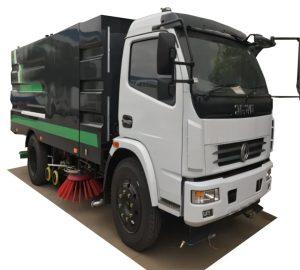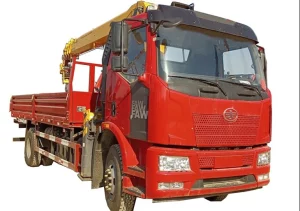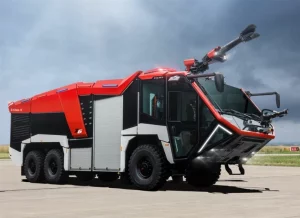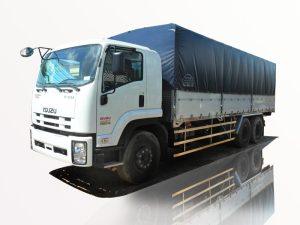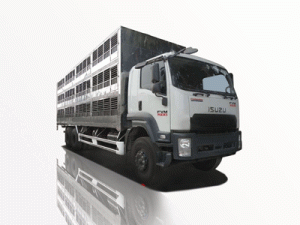Monday to Saturday - 8:00 -17:30
Understanding Waste Oil Tankers: Essential Insights for Operators and Businesses
In today’s environmentally conscious world, the management of waste oil plays a crucial role in various industries. Waste oil tankers are specialized vehicles designed for the safe transport and handling of used oil. This article delves into the complexities of waste oil tankers, their significance, regulatory requirements, and best practices for their operation.
What is a Waste Oil Tanker?
A waste oil tanker is a specialized vehicle designed to collect, transport, store, and dispose of waste oil. These tankers are built to handle various types of oil, including lubricating oil, hydraulic oil, and motor oil, ensuring safe and efficient operations while adhering to environmental regulations.
Types of Waste Oil Tankers
There are several types of waste oil tankers used in the industry, including:
- Vacuum Tankers: These employ a vacuum system to extract waste oil from collection points.
- Gravity Feed Tankers: These rely on gravity to move oil into the tanker from above-ground sources.
- Combination Tanks: These can collect both liquid and solid waste, making them versatile in a variety of applications.
| Type | Advantages | Best Use Case |
|---|---|---|
| Vacuum Tankers | Efficient extraction, minimal spillage | Service stations, industrial sites |
| Gravity Feed Tankers | Simplicity, cost-effective | Small businesses, low-volume collection |
| Multi-purpose, flexible | Municipal waste management, large-scale collection |
Importance of Waste Oil Management
Effective waste oil management is necessary to prevent environmental contamination, comply with regulations, and promote recycling efforts. Waste oil can contain harmful pollutants, making its proper disposal critical:
Environmental Impact
Improper disposal of waste oil can lead to soil contamination, water pollution, and harm to wildlife. By utilizing waste oil tankers, companies can mitigate these risks and reduce their ecological footprint.
Economic Benefits
Recycling used oil can recover valuable resources, saving money in both disposal fees and new oil purchases. Waste oil tankers facilitate this recycling process by transporting used oil to processing facilities.
Regulatory Compliance and Standards
In many regions, waste oil transport and disposal are governed by stringent regulations. Understanding these laws is essential for operators:
Key Regulations
Operators must comply with local, state, and federal regulations, which may include:
- Proper labeling of tankers
- Record-keeping of oil collection
- Licensing and training requirements for drivers
Safety Standards
Tankers must meet safety standards to minimize leaks and spills. Regular maintenance, inspections, and employee training are critical components of compliant operations.
Operational Best Practices for Waste Oil Tankers
1. Regular Maintenance
Conduct routine inspections and maintenance of waste oil tankers to ensure safe operations. Regular checks should include:
- Tank integrity and pressure checks
- Inspecting hoses and fittings for leaks
- Ensuring proper calibration of pumps and meters
2. Proper Training
All personnel involved in waste oil collection and transport must undergo comprehensive training. This includes familiarizing employees with:
- Regulatory requirements
- Emergency response procedures
- Safe loading and unloading practices
3. Use of Technology
Modern waste oil tankers can be equipped with technologies that enhance operational efficiency, such as:
- GPS tracking for route optimization
- Flow meters for accurate oil measurement
- Leak detection systems to minimize spills
Practical Examples of Waste Oil Tanker Applications
Various industries require the services of waste oil tankers. Here are some practical examples:
1. Automotive Industry
Garages and service centers utilize waste oil tankers to collect used oil from oil changes. This oil is then processed for recycling.
2. Manufacturing Facilities
Manufacturing plants that use hydraulic systems generate a significant amount of waste oil. Waste oil tankers are essential in collecting and transporting this oil to recycling centers.
3. Municipal Waste Management
Cities often implement waste oil collection programs, with tankers designated for collecting oil from drop-off locations or community events.
Tips for Choosing a Waste Oil Tanker
Selecting the right waste oil tanker is crucial for efficiency and compliance. Consider the following tips:
1. Assess Volume Requirements
Determine the expected volume of waste oil you’ll be collecting to choose an appropriately sized tanker.
2. Review Features and Customization Options
Look for tankers with customizable features such as pump types, hose lengths, and loading configurations to suit your operational needs.
3. Check for Compliance Certifications
Ensure the tanker complies with local regulations and safety standards. Certifications can provide peace of mind regarding its operational safety.
Future Trends in Waste Oil Management
As the demand for sustainable practices grows, trends in waste oil management are evolving:
Emerging Technologies
Innovations such as mobile processing units and advanced recycling technologies are poised to change how waste oil is managed. These solutions can convert waste oil into usable products on-site, reducing transport needs.
Increased Regulation
As environmental concerns rise, expect more stringent regulations regarding waste oil transport and disposal, creating opportunities for compliant businesses to thrive.
Frequently Asked Questions (FAQ)
1. What types of waste oil can be transported by waste oil tankers?
Waste oil tankers can transport various types of used oils, including motor oil, hydraulic oil, and lubricating oil. However, it is essential to check local regulations regarding specific types of waste.
2. How often should waste oil tankers be maintained?
It’s recommended that waste oil tankers undergo pre-trip inspections, with more comprehensive maintenance performed at regular intervals determined by use and manufacturer guidelines.
3. What should be done in case of a spill during transport?
In the event of a spill, drivers should follow emergency protocols, which typically include notifying local authorities, containing the spill, and using spill response kits to mitigate environmental impact.
4. Are there financial incentives for using waste oil tankers?
Many regions offer financial incentives, such as tax deductions or rebates, for businesses that properly manage waste oil and recycle it, promoting responsible environmental practices.
5. Can waste oil be reused?
Yes, waste oil can be recycled and refined to produce new lubricants or fuel products, making its proper management and transportation vital for sustainability.
6. What certifications should waste oil tankers have?
Waste oil tankers should comply with local and federal regulations, showcasing certifications that ensure safety, environmental compliance, and proper equipment standards.


